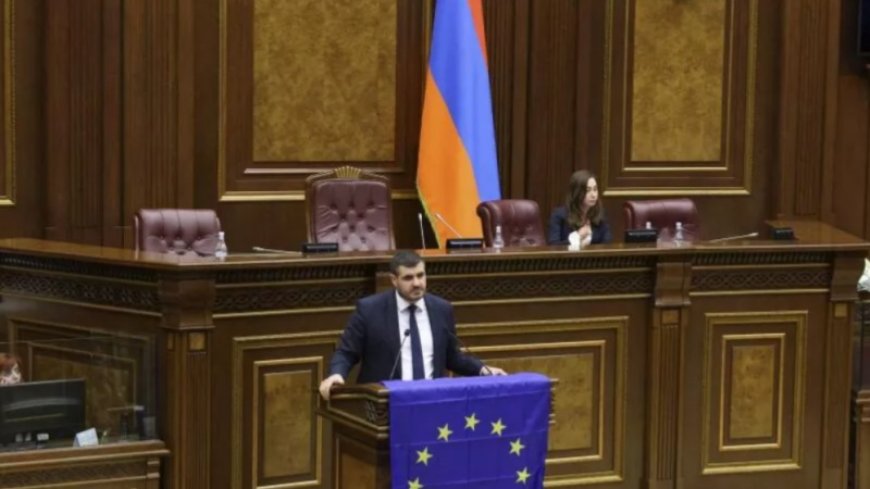In a sharp rebuke, the opposition faction of Armenia's National Assembly has criticized the proposed referendum on amending the Republic of Armenia (RA) Constitution under the pretext of European Union (EU) membership as "artificial" and "disconnected from geopolitical realities." The statement, issued by the "Armenia" faction, suggests that the real agenda behind the referendum is not EU membership but rather constitutional amendments that could align with Turkish-Azerbaijani interests.
The controversy emerged when the "Platform of Democratic Forces" proposed that the RA government hold a referendum on joining the EU within the next 3-4 months. This proposal gained traction when the Standing Committee on European Integration decided to hold parliamentary hearings on the matter, which took place today in the National Assembly's sitting hall.
"The issue of EU membership should be resolved exclusively through mutual agreements reached in the EU-Armenia negotiations," emphasized the opposition faction. They argue that bringing the matter of EU membership to a referendum is a strategic distraction, masking an ulterior motive to amend the Constitution.
"The real purpose of this agenda is to combine a referendum on constitutional amendments with the question of EU membership. This maneuver is intended to meet Turkish-Azerbaijani demands under the guise of EU integration," the "Armenia" faction's statement declared.
The opposition insists that the authorities must transparently address the public and clarify a fundamental issue: whether Armenia should leave the Eurasian Economic Union (EAEU), given that the EU primarily functions as a customs union. This question is critical because Armenia's current membership in the EAEU conflicts with the principles and regulations of the EU.
The debate over the referendum has sparked a broader discussion on Armenia's foreign policy direction and its alignment with regional and global powers. Critics within the opposition warn that rushing into a referendum without thorough public discourse and strategic planning could have significant geopolitical repercussions for Armenia.
The next steps will likely involve intensified discussions and possibly further parliamentary hearings to address these complex issues. As the debate unfolds, the Armenian public and political actors will need to consider the long-term implications of such a referendum on the nation's sovereignty and international relations.














































